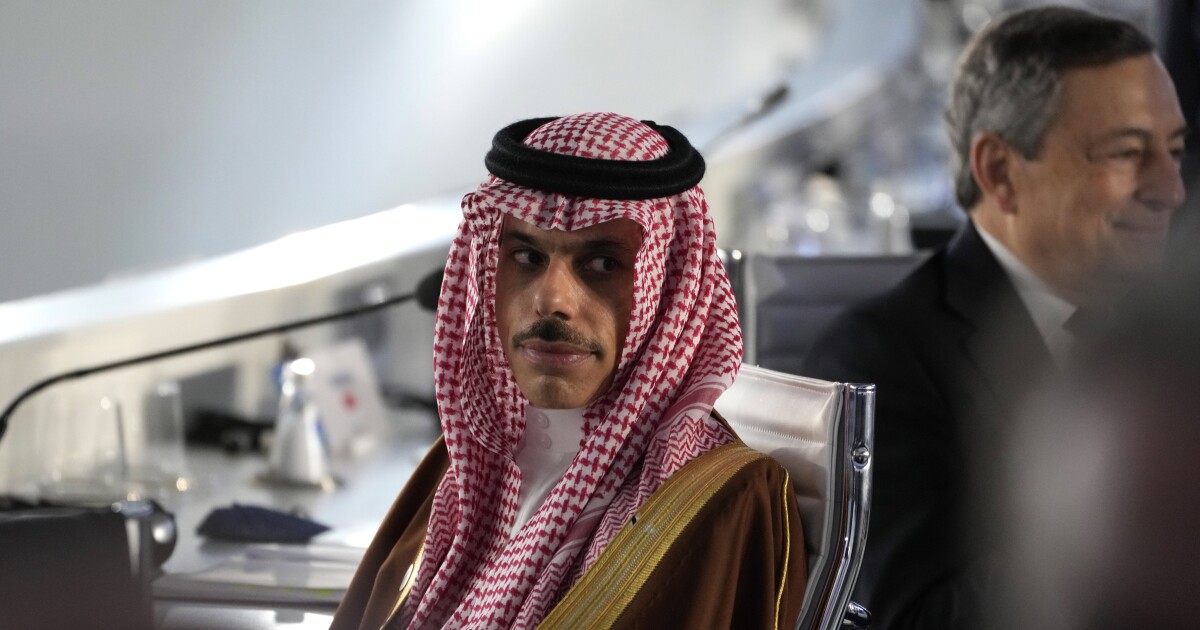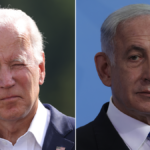

Markets should not expect a big production increase from oil heavyweight Saudi Arabia because it has already “done what it can” to increase supply, a top Saudi diplomat said Tuesday, lowering hopes that the kingdom will help lower soaring fuel prices.
Prince Faisal bin Farhan, Saudi Arabia’s foreign minister, told a crowd at the World Economic Forum that supply and demand are balanced in the kingdom’s view, an assessment shared by the broader Organization of Petroleum Exporting Countries of which Saudi Arabia is a leading member. Biden administration officials have disputed the assessment and, considering the global market to be short on supply, have looked to the Saudis and others to increase production and exports.
GAS PRICES SOAR NEARLY 50 CENTS IN ONE MONTH JUST AHEAD OF SUMMER DRIVING SEASON
“As far as we are aware, there is no shortfall of oil,” Prince Faisal said in Davos, Switzerland.
“It’s much more complex than just bringing barrels to the market,” he also said. “Our assessment is that actually oil supply right now is relatively in balance.”
Oil prices have consistently traded above $100 per barrel since the war in Ukraine began and driven fuel prices to records, leading many leaders to conclude there’s a supply-demand imbalance and to encourage more production.
OPEC+, however, which includes non-OPEC member Russia, has concluded in multiple recent monthly ministerial meetings that it would not increase monthly production beyond 432,000 barrels per day on the view “that current volatility is not caused by fundamentals but by ongoing geopolitical developments” — those developments being the war in Ukraine and subsequent decisions by governments to start reducing the use of Russian energy.
At the same time, OPEC has been falling vastly short of its production increase targets in recent months.
Western leaders, including President Joe Biden, began urging Saudi Arabia and OPEC to increase production as early as last fall, when oil prices started creeping up to multiyear highs. Saudi Arabia and the United Arab Emirates are particular targets, as they are considered the globe’s two primary “swing” producers, meaning they have the capacity to produce additional oil output that could be brought online relatively quickly.
The value of Saudi oil has visibly grown ever since the price spike began. Senior administration officials met with the Saudis earlier in the year about the need to address any disruptions to the oil market.
Meanwhile, since the war began, the British have committed to ending Russian imports by year’s end, and Prime Minister Boris Johnson visited Saudi Arabia in March in pursuit of alternative supplies.
America’s embargo on Russian oil and other energy commodities is already in effect, and the administration has sought additional supplies from ally Canada, the country’s top foreign source of oil, as well as Venezuela, from which sanctions currently restrict imports.
CLICK HERE TO READ MORE FROM THE WASHINGTON EXAMINER
The Biden administration has encouraged more domestic output, too, while also accusing energy companies of gouging drivers and criticizing them for holding oil and gas leases that aren’t producing.
Republicans have criticized the administration for looking to other nations for supplies and for its policies to restrict the growth of oil and gas development. For example, the Interior Department’s Bureau of Land Management will move forward with multiple onshore oil and gas lease sales next month, but it shrank the amount of available acreage by 80%.





